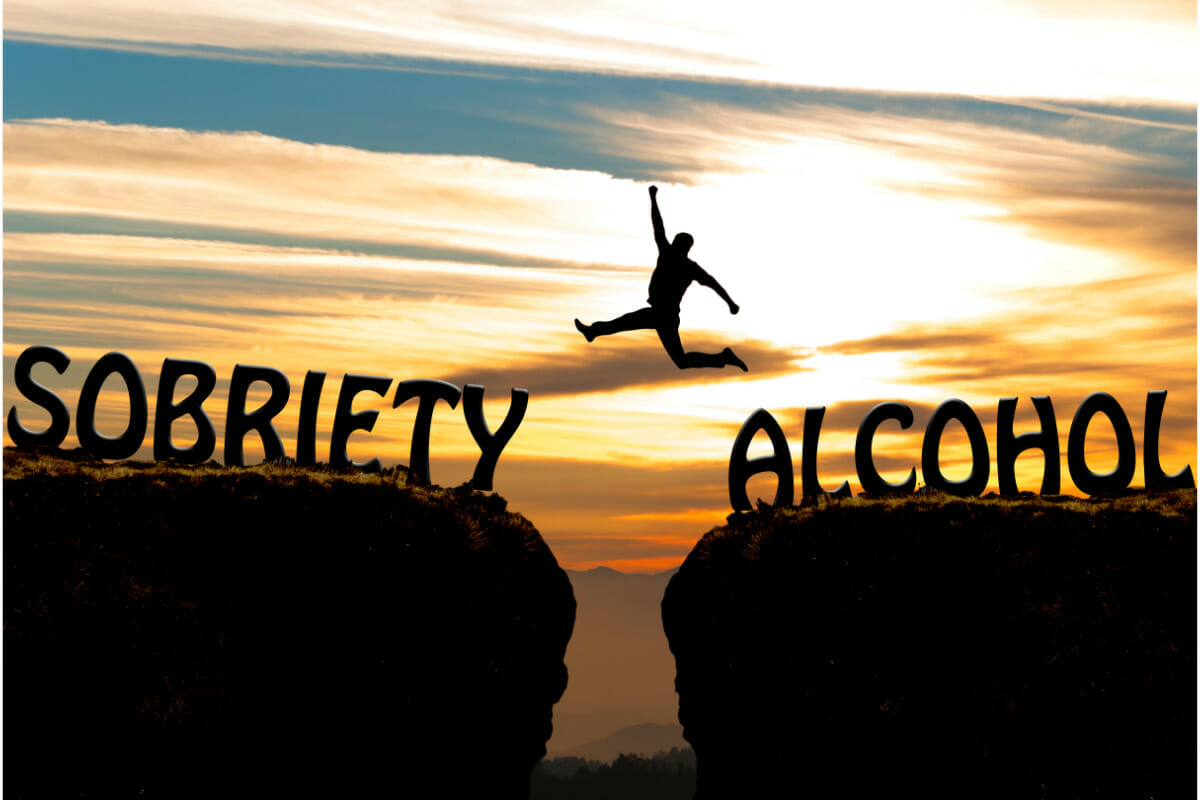Sobriety isn’t Just a Fad for People in Alcohol Rehab
With recent trends like Dry January and Sober October, sobriety is becoming a growing trend. While this is excellent for destigmatizing substance use disorders and spreading awareness of the dangers of binge drinking, sobriety isn’t a trend for someone in recovery from alcohol addiction.
Trying to stay sober as a short-term challenge may be fun and beneficial. However, it’s important to remember that sobriety is a way of life for some – it can’t be switched on and off for a month-long trend.
Beyond Social Drinking: Alcohol Dependency and Alcohol Use Disorder
Alcohol is a common and socially acceptable substance part of many social events, including major sports events like the Super Bowl and holidays.
It’s far from harmless, however. Responsible for over 5 percent of all deaths and the fourth-leading cause of preventable death globally, alcohol is a substance that can rewire the brain and cause physical dependence.1 Worse yet, stopping alcohol with a use disorder can lead to severe – even life-threatening – withdrawal symptoms.
Even when used responsibly, alcohol is not without its side effects. Regular alcohol use can have physical, psychological, and social impacts, including liver problems, weight gain, relationship damage, unemployment, and congenital disabilities in the infants of women who drink during pregnancy.
Alcohol use disorder, otherwise known as alcoholism or alcohol addiction, happens when someone cannot control their alcohol consumption.2 Addiction is a psychological problem, while dependence is a physiological one. They typically occur at the same time.
Alcohol use disorder is considered a mental health disorder. Over time, alcohol can cause lasting changes in the function of the brain, making use and relapse more likely. It can range from mild to severe, with wide-reaching effects on personal, professional, financial, and spiritual aspects of a person’s life.
Risk Factors for Alcohol Use Disorder
Many factors can contribute to alcohol use disorder, but some of the most considerable risk factors include:3
- Drinking before age 15
- Binge drinking
- A genetic predisposition to alcohol use
- Mental health conditions like anxiety or depression
- A history of trauma
Simply using alcohol doesn’t indicate a substance use problem or mean that addiction will develop, but the risk increases as the person continues drinking.
Symptoms and Signs of Alcohol Dependence and Addiction
Alcohol dependence and addiction have physical, psychological, and social signs and symptoms, including:
- Drinking more and more alcohol
- Spending more time recovering from the effects of alcohol
- Devoting energy and money to getting and using alcohol
- Displaying outward signs of intoxication, such as slurred speech and coordination problems
- Decreased self-care and hygiene
- Increased alcohol-related injuries from risky or clumsy behaviors
- Capricious moods
- Irritability and aggression
- Issues with focus and memory
- Worsening anxiety
- Hallucinations or delusions
- Increasing isolation
- Spending more time in different social groups
- Failing to set and keep social plans
- Deceptive or avoidance behaviors
- Conflicts with friends and family members
- Poor performance at work or school
With prolonged use, alcohol can cause:
- Cancer
- Heart problems, such as stroke or heart attack
- Liver problems, such as hepatitis and cirrhosis
- Pancreatitis
- Poor immunity
Socially, continued alcohol use can disrupt day-to-day life and damage relationships. People with alcohol use disorder may lose their jobs, spouse, children, housing, and friends. If legal issues arise, a person with alcohol use disorder may struggle with lawyers’ costs and possible incarceration.
As alcohol use continues, the body and brain adjust to its presence and undergo changes – this is alcohol dependence. When this happens, the body needs alcohol to function normally, and without it, withdrawal occurs.
Alcohol Rehab
Alcohol use disorder is treatable, but like other substance use disorders, it comes with a period of withdrawal. Symptoms of withdrawal include:
- Rapid heart rate
- Sweating
- Tremors
- Increased stress and anxiety
- Mood swings
- Insomnia
- Nausea and vomiting
- Irritability
- Seizures
- Hallucinations
The most severe symptoms can last from a few hours up to over a week. Psychological symptoms, such as insomnia and anxiety, can last for months.
People with severe alcohol use disorder may need medical help to manage withdrawal symptoms. Stopping alcohol abruptly can lead to life-threatening complications, and it’s vital to have a doctor’s supervision for the process.
Alcohol Rehab at Silver Sands Recovery
People with alcohol use disorder can recover, but it’s a difficult process. Sobriety is a journey, not a destination, and requires lifestyle changes and commitment. For these people, Dry January continues throughout the entire year.
If you or a loved one are seeking alcohol rehab, help is available. At Silver Sands Recovery, we offer a range of treatment options tailored to the individual. Contact us today to learn more about our treatment options and start on the path to recovery.
Sources:
[1] https://www.medscape.com/viewarticle/902614
[2] https://www.niaaa.nih.gov/publications/brochures-and-fact-sheets/understanding-alcohol-use-disorder
[3] https://www.niaaa.nih.gov/publications/brochures-and-fact-sheets/understanding-alcohol-use-disorder
About the author:

Lisa Waknin is the Founder and Director of Silver Sands Recovery, located in Prescott, Arizona. Lisa started Silver Sands Recovery after immersing herself in the addiction treatment world for several years to figure out what could be done differently to help her daughter and others like her to overcome addiction and stay sober. She believes in a hands-on treatment approach, which includes taking someone out of their environment, providing a 90-day program in a structured environment. During treatment, clients not only recover physically but also learn to live their life again. Lisa is a sought-after expert speaker for recovery support groups, charities, schools, communities, and companies wanting to educate themselves on the explosion of opiate and heroin abuse in our country and the best way to understand, treat, and beat it.





